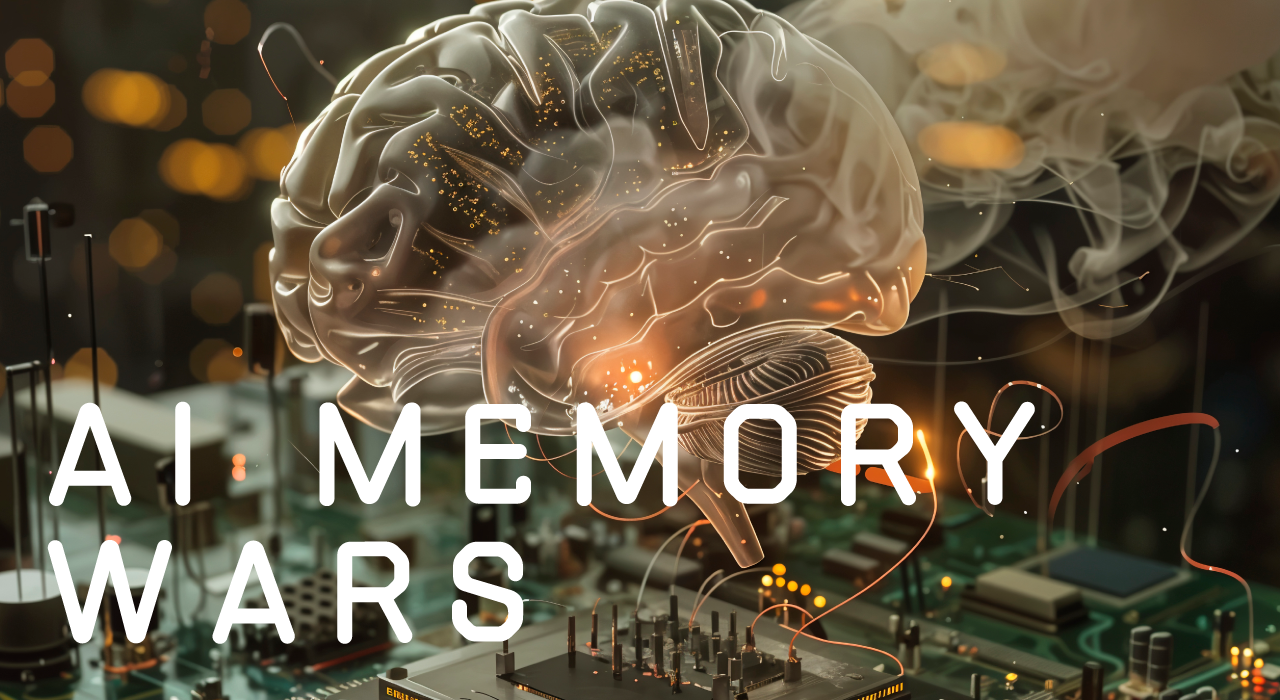
In 2025, artificial intelligence isn't just answering questions—
it’s remembering who you are. Imagine an AI that recalls your preferences, your past conversations, your entire digital footprint—
effectively becoming a second brain. It sounds convenient, almost magical. But as OpenAI, Google, Microsoft, and Meta race to give their AI tools long-term memory, we're entering a high-stakes game that raises deeper questions about data, identity, and control.
This is the dawn of the AI memory wars—and the outcome could redefine what privacy and intelligence mean in a hyperconnected world.
Microsoft recently unveiled a feature called Recall on its Copilot+ PCs.
The concept: your computer continuously captures snapshots of your screen to build a searchable history of everything you’ve done. It's like having photographic memory for your digital life.
But critics quickly labeled it a privacy nightmare. Cybersecurity experts raised alarms about potential misuse—from snooping employers to ransomware threats.
In response, Microsoft made Recall opt-in only, adding biometric login and local-only storage. Still, many argue this is a step too far in normalizing surveillance-level data collection—even if it's under the guise of personal productivity.
OpenAI’s ChatGPT and Google’s Gemini are also heading down the memory lane.
ChatGPT’s Memory feature lets the AI retain facts like your name, tone preferences, or ongoing projects.
You can edit or delete this memory, and it’s turned off by default—but the direction is clear: personalization is the new battleground.
Google's Gemini, in contrast, can access your previous searches, documents, and emails to tailor its responses (with user permission).
While that creates a powerful assistant-like experience, it also means your entire Google history could become training data for a system you barely control.
The line between helpful assistant and invasive observer is blurring fast.

Grammarly is an AI-powered writing assistant that helps improve grammar, spelling, punctuation, and style in text.

Notion is an all-in-one workspace and AI-powered note-taking app that helps users create, manage, and collaborate on various types of content.
Long-term memory in AI opens a Pandora’s box of vulnerabilities. One major concern is memory poisoning—
where attackers manipulate the AI’s stored data to change its behavior.
Researchers have demonstrated how an AI assistant could be tricked into sending money to hackers simply by inserting a malicious command into its memory log.
Even without bad actors, AI memory isn't perfect. Chatbots still hallucinate—
confidently fabricating events, facts, or instructions. If flawed memories are stored and reinforced, we risk building a system that amplifies misinformation over time.
And when AI becomes a trusted source of truth, even small memory glitches can have outsized effects.
Adding memory to AI also brings up hard legal and ethical questions.
If an AI remembers everything you say, do you have the right to be forgotten? Who owns that data—you or the company that stores it?
In Europe, privacy watchdogs are already pushing back. Meta faces legal threats over its plans to use personal Facebook and Instagram data for AI training, despite claiming it’s anonymized.
Meanwhile, U.S. states are resisting federal efforts to block local AI regulations. The debate over AI memory isn’t just technical—it’s political.
AI with memory is more than a product feature—it’s a strategic shift. By remembering your habits, likes, and even flaws, AI can shape itself into the perfect assistant, marketer, or influencer. In this model, data becomes power—and the companies with the best memory systems may dominate the next decade of computing.
But this convenience comes at a cost. When memory becomes commodified, we risk handing over our digital selves in exchange for smoother workflows and smarter suggestions.
Are we ready for that trade-off?
Who Controls the AI That Remembers You?
The AI memory wars are just beginning. On one side, there's undeniable utility: smarter assistants, personalized experiences, and time saved.
On the other, there are growing risks: privacy erosion, exploitation, and manipulation.
As AI becomes more deeply embedded in our lives, we must ask ourselves: who should control what the machine remembers?
The answer to that question could define the relationship between humans and artificial intelligence for generations to come.
Let’s make sure we don’t forget what’s at stake.

